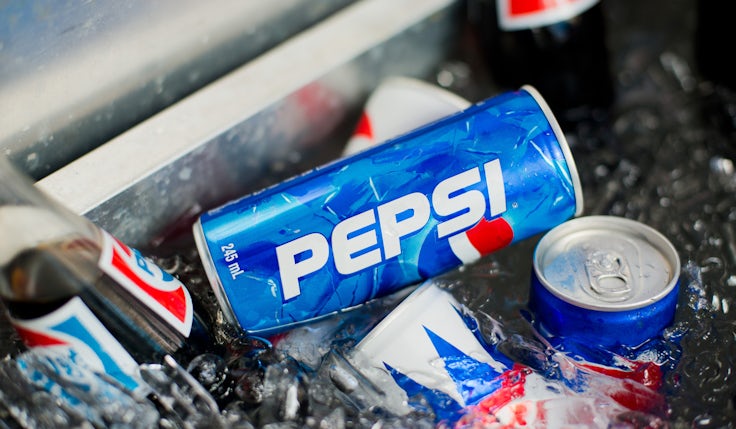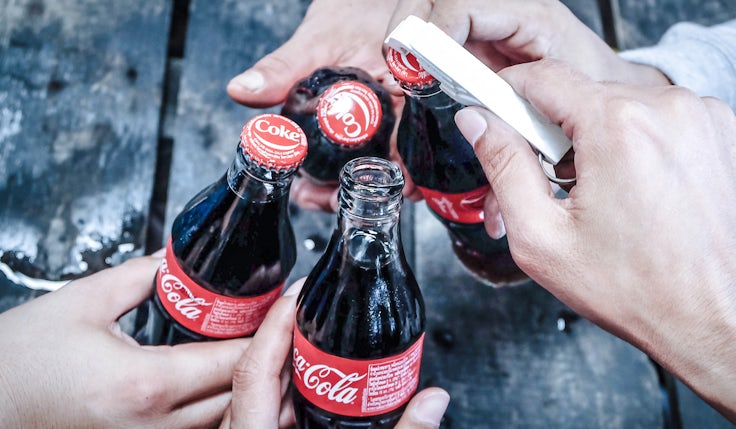PepsiCo marketing becomes ‘more selective’ with focus on fewer, bigger activities
PepsiCo may have cut its marketing spend during the coronavirus crisis, but it believes that has led it to “become better” at marketing as it focuses more on activities that generate higher ROI.
 PepsiCo says the Covid-19 crisis has led it to become “more selective” in the type of advertising and marketing it runs, stopping activities that had lower return on investment (ROI) and focusing on those with greater returns.
PepsiCo says the Covid-19 crisis has led it to become “more selective” in the type of advertising and marketing it runs, stopping activities that had lower return on investment (ROI) and focusing on those with greater returns.
Speaking on an analyst call yesterday (13 July) following its second quarter results, PepsiCo CEO Ramon Laguarta said while advertising remains “critical” to its strategy it has had to adjust activity as consumer habits changed. That has meant reining in marketing spending as countries went into lockdown and sales in many areas – particularly fizzy drinks – dropped.
However, he believes that in some cases this has helped PepsiCo “become better” at marketing, because it forced the company to simplify and be more selective.
“Sometimes a crisis helps [a company] to be more selective and to be more impactful, to generate internal momentum against simplificaton and focus against fewer and bigger. That’s what we’re trying to do,” Laguarta said.
“Obviously, through the balance of the year we will continue to invest as we see the consumers moving around and demand for our products starting to be a bit higher. And again, trying not to lose that focus on fewer and bigger, and trying to minimise the lower ROI initiatives that sometimes we have in what is a very large business.”
The pandemic has also led PepsiCo to build more in-house capability in advertising and marketing, which it also believes is strengthening its activities.
“[In-housing] has got a couple of benefits. One, it improves our speed; and two, it has proven to be more efficient over time. We can actually get the same or more value for less money, which is obviously a terrific outcome for the company,” said CFO Hugh Johnston.
PepsiCo’s results for the second quarter were better than many analysts had forecast as its snacking and breakfast businesses grew. The company says with many employees still working from home, it has seen an increase in sales of brands including Doritos and Tostitos, helping to push organic sales at its Frito-Lay division in North America up 6% year on year.
Fewer people commuting and more people eating breakfast at home has also driven sales of its Quaker Oats business up 23%.
However, organic sales at its North American beverage unit, which includes its eponymous fizzy drink, fell by 7%. It was hit by the closure of venues including bars and restaurants, as well as fewer on-the-go sales.
Internationally, organic sales fell by 5% year on year in beverages, but rose 2% in snacks. That meant that overall PepsiCo’s net revenues to 13 June fell 3% from a year ago to $15.9bn, while net income came in at $1.65bn.
Laguarta sees the growth of ecommerce during the pandemic as a key area of focus for PepsiCo going forward as it looks to increase its overall market share. In May, it opened its first two direct-to-consumer websites in a bid to gain a foothold in the market.
Brands go direct to consumer to capitalise on ecommerce surge
The first, pantryshop.com, allows consumers to order bundles of PepsiCo pantry brands including Quaker, Gatorade, Tropicana and Sunchips. The second site, Snacks.com, lets shoppers pick from more than 100 Frito-Lay products such as Lay’s, Cheetos and Ruffles.
“Whoever wins in ecommerce now and is able to capture those families that are trying this e-grocery service for the first time, I think is going to win those families in the future,” said Laguarta.
“So we’re investing heavily in trying to be the first in that channel. The investments that we made in the last few years, last year in particular, are helping us both from the data availability, the agility of our infrastructure to supply those channels.”







